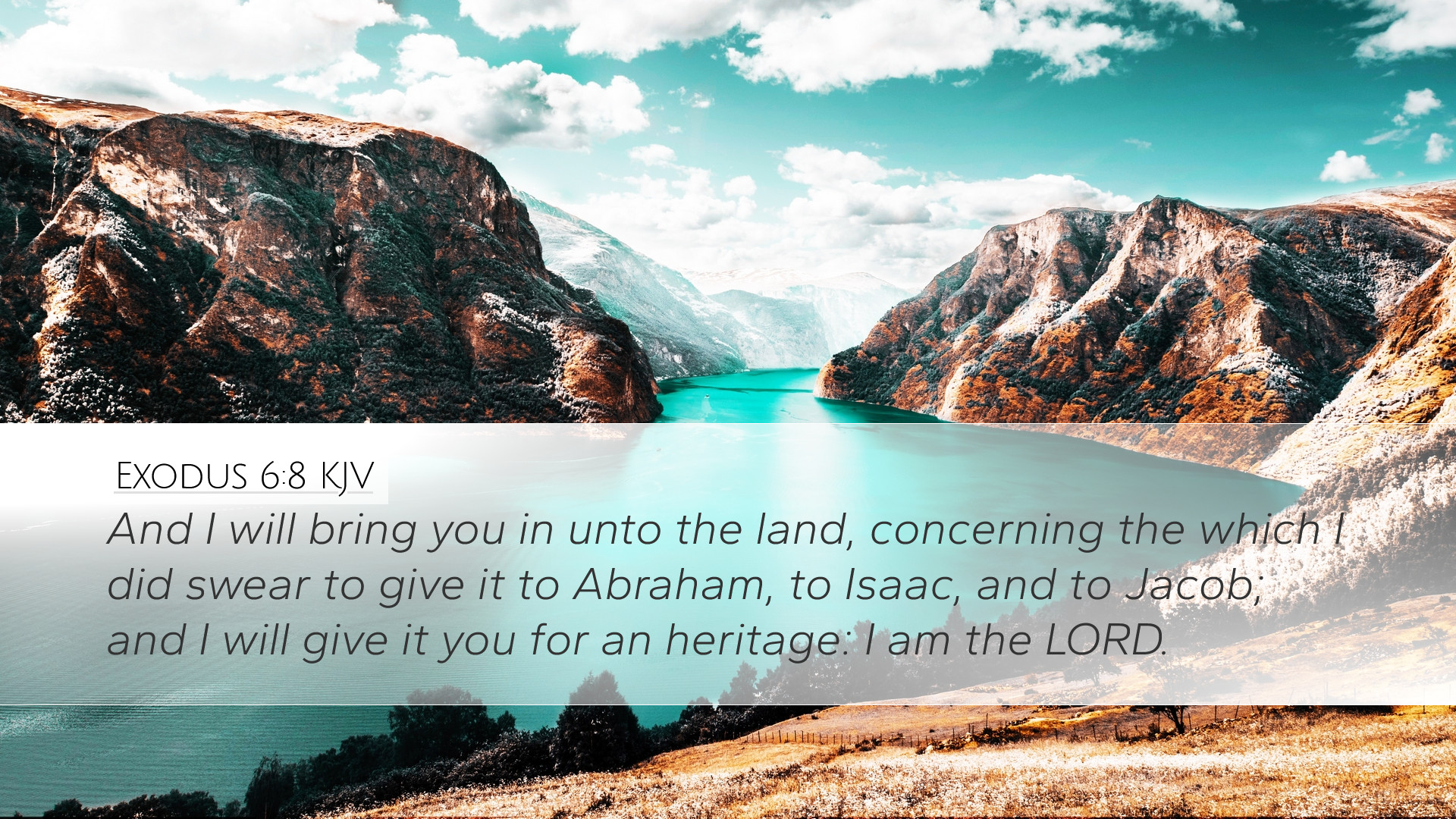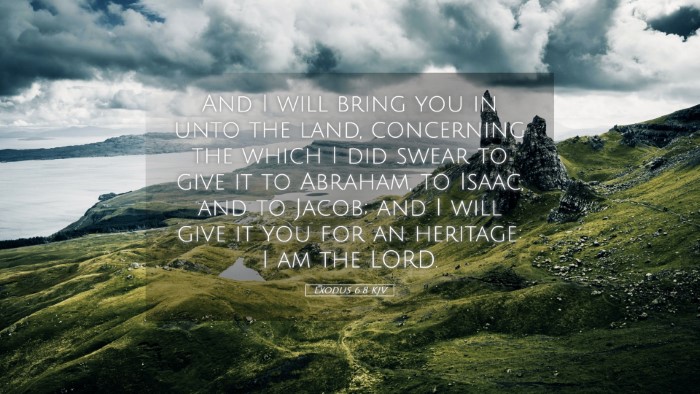Exodus 6:8 - Commentary Summary
Verse: "And I will bring you in unto the land, concerning the which I did swear to give it to Abraham, to Isaac, and to Jacob; and I will give it you for an heritage: I am the LORD."
Contextual Overview
This verse falls within the broader narrative of the Israelites’ enslavement in Egypt and God’s covenant promise to deliver them. As God renews His covenant and commitment to the patriarchs—Abraham, Isaac, and Jacob—Exodus 6:8 serves as a pivotal reminder of God's faithfulness amidst Israel's suffering and despair.
Theological Insights
- Covenantal Promises: God’s statement here underscores the importance of His covenantal faithfulness. It reaffirms that the deliverance of Israel is not merely about liberation from oppression but is rooted in the promises made to the patriarchs.
- Divine Sovereignty: The phrase “I am the LORD” emphasizes God’s authority and control over history. This serves not just as a reassurance to Moses, but also to the Israelites that their situation is not outside of God’s sovereign plan.
Commentary Excerpts
Matthew Henry
Matthew Henry highlights that this promise to bring Israel to the land of Canaan demonstrates God’s mercy and kindness to His people. He notes that God’s assurances were not simply to the generation in slavery but were rooted in His everlasting covenant with their ancestors. This eternal aspect of the promise should encourage believers today in God’s unchanging nature and faithfulness.
Albert Barnes
Albert Barnes elaborates on the implications of the land as an “heritage.” He asserts that inheriting the land symbolizes a complete restoration and fulfillment of God’s promises. Barnes emphasizes that this was not just a geographic or political promise but had profound spiritual implications. It encapsulates the hope of spiritual inheritance that believers receive through Christ.
Adam Clarke
Adam Clarke discusses the historical significance of this verse, placing it within the framework of God’s redemptive plan. He interprets God’s commitment as not only a promise made to Israel but as a declaration of His eternal guardianship. Clarke notes that the reference to “bring you in” signifies not only physical deliverance but an invitation into relationship and covenantal fellowship with God.
Application for Today’s Believers
This verse prompts several reflections for modern readers:
- Trusting in Divine Promises: Just as God was faithful to His promises to the Israelites, believers can trust in the fulfillment of God’s promises in their own lives, especially in times of distress or uncertainty.
- The Nature of Faith: Faith involves believing in what God has promised, even when circumstances seem contrary. The Israelites' experience serves as an encouragement to cling to God’s word during challenging times.
- Recognizing Inheritance: Believers today are part of a new covenant that incorporates the blessings of God’s kingdom. This calls for an understanding of spiritual inheritance as outlined in the New Testament, connecting the Old and New Testaments in a comprehensive view of redemption.
Concluding Reflections
Exodus 6:8 embodies a profound declaration of God’s covenantal fidelity. The interplay between historical promise and contemporary application is vital for deepening our understanding of Scripture. For pastors, students, theologians, and Bible scholars, this verse serves as a touchstone for discussing God's unchanging character and His profound commitment to His people—encouraging them as they navigate their own faith journeys.


